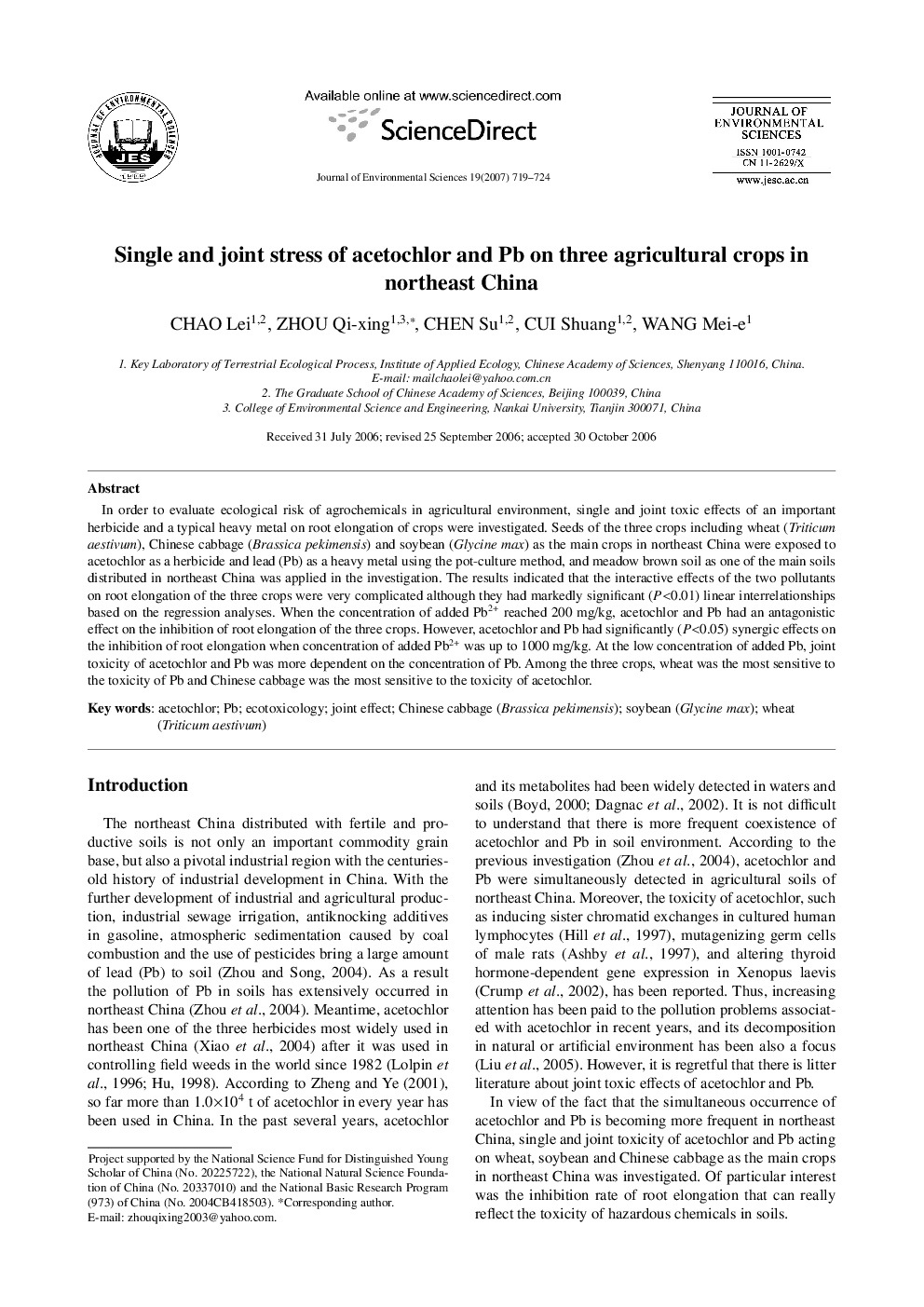| کد مقاله | کد نشریه | سال انتشار | مقاله انگلیسی | نسخه تمام متن |
|---|---|---|---|---|
| 4456666 | 1312565 | 2007 | 6 صفحه PDF | دانلود رایگان |

In order to evaluate ecological risk of agrochemicals in agricultural environment, single and joint toxic effects of an important herbicide and a typical heavy metal on root elongation of crops were investigated. Seeds of the three crops including wheat (Triticum aestivum), Chinese cabbage (Brassica pekimensis) and soybean (Glycine max) as the main crops in northeast China were exposed to acetochlor as a herbicide and lead (Pb) as a heavy metal using the pot-culture method, and meadow brown soil as one of the main soils distributed in northeast China was applied in the investigation. The results indicated that the interactive effects of the two pollutants on root elongation of the three crops were very complicated although they had markedly significant (P<0.01) linear interrelationships based on the regression analyses. When the concentration of added Pb2+ reached 200 mg/kg, acetochlor and Pb had an antagonistic effect on the inhibition of root elongation of the three crops. However, acetochlor and Pb had significantly (P<0.05) synergic effects on the inhibition of root elongation when concentration of added Pb2+ was up to 1000 mg/kg. At the low concentration of added Pb, joint toxicity of acetochlor and Pb was more dependent on the concentration of Pb. Among the three crops, wheat was the most sensitive to the toxicity of Pb and Chinese cabbage was the most sensitive to the toxicity of acetochlor.
Journal: Journal of Environmental Sciences - Volume 19, Issue 6, 2007, Pages 719-724